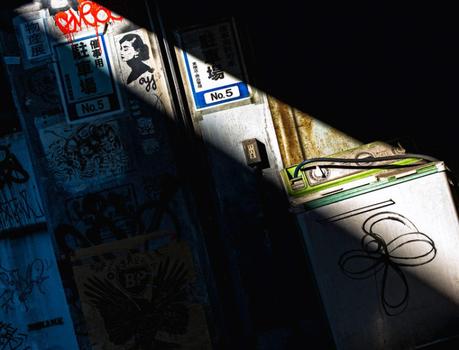 According to the latest edition of The Economist Pocket World in Figures, the UK heads the world ranking for new titles published, with 2,875 per million of population in 2013 (compared to 1,831 in Slovenia and Taiwan in joint second place, and 959 in the United States in 12th). I find all of this staggering and it also makes me feel a lot better about the impossibility of keeping up with new releases, especially as I like books from all over. It’s one of those things that can squeeze the joy out of book blogging if you get too hung up on it; my feeling is that a good book is worth talking about any time. And that is why, despite having missed it on release last summer, today’s Writers on Location is dedicated to a novel and a city called TOKYO.
According to the latest edition of The Economist Pocket World in Figures, the UK heads the world ranking for new titles published, with 2,875 per million of population in 2013 (compared to 1,831 in Slovenia and Taiwan in joint second place, and 959 in the United States in 12th). I find all of this staggering and it also makes me feel a lot better about the impossibility of keeping up with new releases, especially as I like books from all over. It’s one of those things that can squeeze the joy out of book blogging if you get too hung up on it; my feeling is that a good book is worth talking about any time. And that is why, despite having missed it on release last summer, today’s Writers on Location is dedicated to a novel and a city called TOKYO.
Nicholas Hogg was nominated for the IMPAC literary award for his debut novel, Show Me the Sky. Winner of the New Writing Ventures prize for fiction, and numerous short story contests, his work has also been broadcast by the BBC. TOKYO is his third novel and he joins me to tell the story behind it. (my mini-review follows):
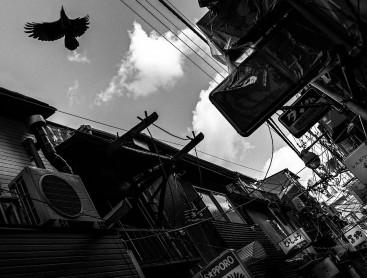
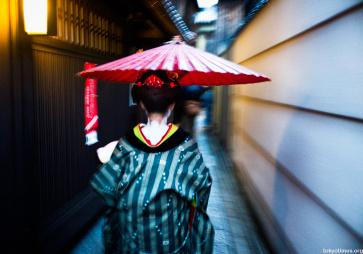
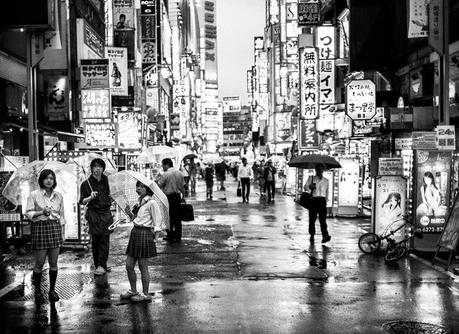
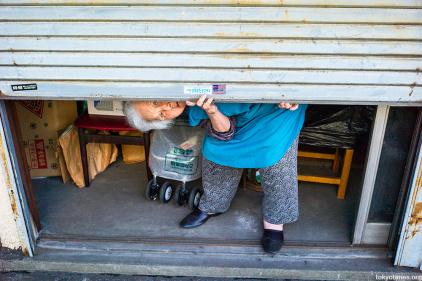
The contrast to this machine of a city that never switches off is the calm of a traditional suburb. Within sight of the steel and glass of modern Tokyo, the narrow side-streets, crammed with little houses and neat, well-kept gardens, are Zen neighbourhoods. The Japanese work and play hard, but retiring to a quiet room at the end of a day is essential. You won’t hear drum and bass thudding your walls at midnight, although you might be woken by the cawing of crows, handsome and intelligent birds – you’ll see a crow or two fluttering across the pages of Tokyo – that are also somewhat of a pest due to their cunning in scavenging food from bins. But who could blame them for hunting down scraps in a city with more Michelin stars than any other in the world.
Life in the crowds can stress the uninitiated. Get your commute wrong and you’ll be packed onto a train and jammed under a sweating salaryman’s armpit – yes, some stereotypes are true, particularly during morning rush hour. Then again, I write a sentence in the novel about my protagonist preferring the ordered crush in Tokyo, where locals adhere to the social codes of dense living and not pushing or queue cutting, to the bustling mayhem of Oxford Street on a Saturday afternoon.
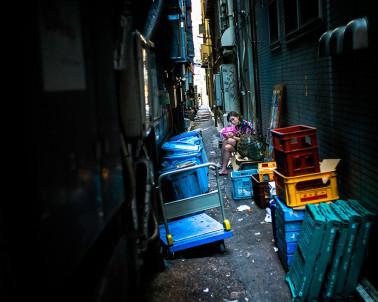
I hope that Tokyo has captured the city I love. Like any metropolis it has its good and its bad side, its shadows and light. I may write about the seedy club scene and the ruthless Yakuza, but I also celebrate the people, food, transport (yes, the trains are a true joy) and the unique sense of community in Japan, as well as its traditions and remarkable folk stories – especially that tale of a stranger appearing in a foreign land.
ありがとうto Nicholas for this fantastic piece – Tokyo has risen even higher on my long travel wishlist! Stunning photos © Lee Chapman
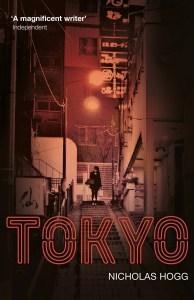
As you will have gathered, something about this book really made me want to feature it on the Literary Sofa. Even by the standards of the Writers on Location series, Tokyo has an exceptionally immersive sense of place that operates in many dimensions: physical, sensory, psychological. This is a sophisticated and complex (but not ‘difficult’) novel with a palpable sense of intrigue and menace that make it a consistently compelling read. I found myself empathising with protagonist Ben Monroe through his ex-pat experiences and newly rekindled relationship with teenage daughter Mazzy; the latter is an underexplored dynamic in fiction and it was poignant and believable. Ben’s complicated relationship with Kozue is fascinating (as is she) and whilst the quality of the writing impressed me from start to finish, a special mention goes to the very sensual and erotic love scenes. I will be watching out for Nicholas Hogg’s next book!
